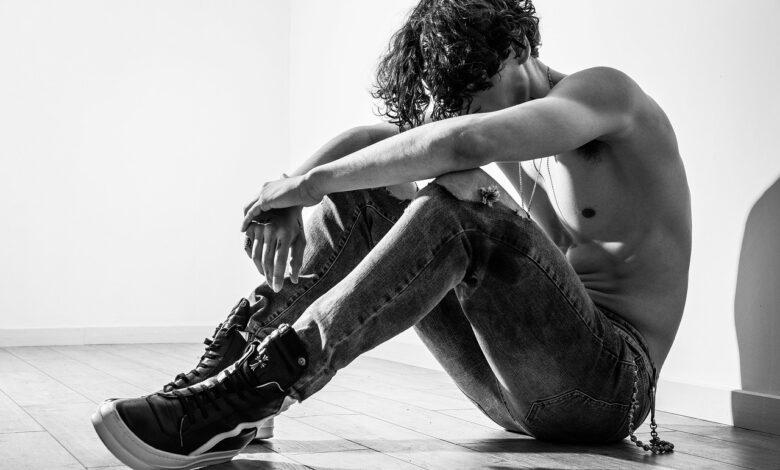Body Dream Meaning and Interpretation

Dreams are the windows to our subconscious. They ferry us into a world where reality mingles with fantasy, often leaving us with questions, curiosities, and sometimes, profound insights. One of the recurring themes in dreams is that of our own bodies. The Body Dream Meaning can be as complex as it is intriguing. Delving into body dreams helps us navigate through the labyrinth of our psyche, unearthing fears, desires, and aspects of self-awareness.
Exploring the realm of body dreams requires a blend of symbolic understanding, psychological insights, and cultural contexts. As we traverse through this enlightening yet mystifying topic, you’ll find that the body in dreams is not just a physical entity, but a vessel carrying deeper implications about our existential ethos.
Interpretations of Body Dreams
Delving into the interpretations of body dreams is akin to embarking on a journey inward, towards a deeper understanding of oneself. The body, in dreams, often acts as a metaphor, its condition reflecting our own emotional, psychological, or physical states. Here’s a breakdown of some common interpretations of body dreams, based on various elements and scenarios:
- Physical Appearance:
- Size and Shape: Dreaming about your body’s size or shape might reflect your self-esteem or self-image. For instance, appearing larger might indicate a feeling of empowerment or bloated self-importance, while appearing smaller could signify a sense of inadequacy or vulnerability.
- Attractiveness: Dreams where you find yourself exceptionally attractive or the opposite might indicate your satisfaction or dissatisfaction with your appearance, or possibly deeper issues related to self-worth and acceptance.
- Body Parts:
- Head: The head often symbolizes intellect or reasoning. Dreams about your head might reflect thoughts, decisions, or concerns you’re grappling with.
- Heart: Typically a symbol of emotions, love, or fear, dreaming about your heart might denote your emotional state or relationships.
- Hands: Hands in dreams may symbolize the way you handle situations, relationships, or tasks.
- Legs: Dreaming about legs can denote your sense of independence, strength, or your ability to progress in life.
- Health and Well-being:
- Transformation:
- Alterations: Drastic changes to your body in a dream, like shrinking, growing, or morphing into another form can indicate major shifts in your self-perception or in your life.
- Aging: Dreams of aging might represent fears of becoming older, losing vitality, or facing mortality.
- Interaction:
- Neglect or Abandonment: Dream scenarios where you neglect or abandon your body might hint at personal neglect or ignoring certain aspects of your life or health.
- Nurturance: Dreams of nurturing your body could indicate a harmonious relationship with yourself or a growing self-care routine.
These interpretations can vary widely among different individuals, and analyzing them in the context of personal experiences and emotions is crucial for a more accurate understanding. The symbolism in body dreams can offer insightful glimpses into our minds, and unraveling these dream threads can lead to a richer self-awareness and personal growth. This journey of interpretation, though complex, often holds the keys to unlocking deeper comprehension of our inner workings and overarching human experiences.
What is the Symbolism of Body?
The symbolism of the body in dreams is a vast and rich domain, inviting us into a deeper engagement with our subconscious minds. Our physical form is not merely a physical entity but a tapestry of symbols embodying various facets of our existence. Here’s an examination of the multiple layers of symbolism associated with the body:
- Wholeness and Integration:
- The body often symbolizes a sense of wholeness or integration, reflecting a harmonious blend of mind, body, and spirit. When dreaming of a well-tuned, healthy body, it could symbolize balance and alignment in one’s life.
- Identity and Self-Expression:
- The body is a vessel of our identity and self-expression. How we appear in our dreams can mirror our self-perception, self-esteem, and the manner in which we present ourselves in waking life.
- Physical Health and Vitality:
- Our physical health often takes a symbolic stage in our dreams. Dreams about the body can alert us to health issues, or reflect our vitality, energy levels, and overall well-being.
- Emotional State:
- The condition of the body in dreams often mirrors our emotional state. For instance, feeling trapped in one’s body might reflect feelings of restriction or confinement in certain life situations.
- Personal Boundaries:
- The body symbolizes personal boundaries. Dreams where boundaries are crossed or respected can reveal insights about interpersonal relationships and self-respect.
- Life Experiences and Growth:
- Our bodies in dreams may represent our life experiences, lessons learned, and personal growth over time. They might reflect our resilience, strengths, and the scars of past experiences.
- Sexuality and Desire:
- The body is also a symbol of sexuality, desire, and reproductive instincts. How we interact with our own body or others’ bodies in dreams can reflect our attitudes towards sexuality and intimacy.
- Existential Concerns:
- At a deeper level, body dreams may surface existential concerns regarding mortality, the human condition, and the essence of one’s being.
- Cultural and Social Constructs:
- Lastly, our dream bodies can also represent societal expectations and cultural norms regarding beauty, health, and acceptability. They can reflect our alignment or conflict with these external standards.
The symbolism of the body is a rich field of exploration, offering a mirror to reflect on our inner realities, desires, fears, and aspirations. Each dream about the body is a narrative woven with symbols awaiting interpretation, leading to a better understanding of oneself and the tapestry of human experience. Through decoding the symbolism, one steps into a realm of self-discovery and existential exploration, making the journey of understanding body dream meanings a profoundly enriching endeavor.
Common and Typical Dreams of Body
Dreaming about one’s body is a common occurrence, offering a profound mirror into personal and existential themes we may be navigating in our waking lives. These dreams come in various forms, each with its own set of symbols and potential meanings. Below are some common and typical body-related dreams and a brief exploration of what they might signify:
- Growing or Shrinking:
- Dreaming of one’s body growing or shrinking can symbolize feelings of empowerment or inadequacy respectively. It might also reflect one’s self-esteem and self-worth.
- Floating or Flying:
- Dreams where one is floating or flying might indicate a desire for freedom, transcendence, or escape from certain situations in life.
- Being Naked:
- Dreams of nudity can represent vulnerability, shame, or, conversely, freedom and authenticity. It might also reflect one’s fear of being exposed or judged.
- Body Disfigurement or Distortion:
- Dreams of body disfigurement or distortion can signify fear, self-esteem issues, or concerns about physical attractiveness. They might also mirror feelings of alienation or being out of control.
- Disability or Impairment:
- Dreaming of disabilities or impairments may reflect feelings of helplessness, inadequacy or fear of dependency. It could also represent limitations one is experiencing in waking life.
- Body Swapping:
- Dreams of swapping bodies with someone else might signify a desire to understand others better, escape one’s own life, or explore uncharted territories of one’s identity.
- Being Pregnant:
- Dreams of pregnancy might symbolize fertility, potential, or new beginnings. It could also reflect one’s nurturing nature or concerns about responsibility and dependency.
- Mirror Reflection:
- Seeing oneself in a mirror in a dream might indicate self-reflection, self-criticism, or the desire for self-improvement.
- Being Chased:
- Dreams of being chased could indicate avoidance, fear, or running away from a particular situation in waking life.
- Body Injury or Wound:
- Dreams of body injuries or wounds might reflect emotional hurt, feelings of vulnerability, or fear of being hurt.
The realm of body dreams is a vivid testament to the multifaceted nature of human experience. The commonality and recurrence of such dreams echo universal themes of identity, self-perception, and existential dilemmas. Delving into these typical body dreams, one might unravel personalized insights that illuminate one’s journey through the contours of self-awareness and the unfolding narrative of life. By examining these common dream themes, individuals can gain a better understanding of their subconscious concerns, desires, and the complex tapestry of symbols that their body dreams are inviting them to explore.
Body-related Dreams
Body-related dreams are a wide category, encompassing various aspects of the human form and its interactions with the world around. These dreams can unfold in countless scenarios, each with unique symbols and meanings. Here’s a deeper dive into some types of body-related dreams and their possible implications:
- Physical Conditions:
- Dreams that highlight physical conditions such as illness, injury, or disability could be mirroring fears, anxieties, or actual health concerns. They might also reflect feelings of vulnerability or inadequacy.
- Aging and Life Stages:
- Dreams depicting different life stages or the process of aging could be exploring fears of mortality, the passage of time, or one’s acceptance of their life journey.
- Body Modification:
- Dreams involving tattoos, piercings, or other forms of body modification might signify personal transformation, identity exploration, or a desire for uniqueness and self-expression.
- Body Movement:
- Dreams of running, dancing, flying, or other forms of body movement can symbolize one’s sense of freedom, capability, or desire for expression. They might also reflect one’s emotions, aspirations, or current life circumstances.
- Body Size and Shape:
- Dreams about body size and shape often reflect one’s self-image, self-esteem, and societal or personal standards of attractiveness. They might also explore themes of adequacy, acceptance, and personal growth.
- Exposure and Covering:
- Dreams of being naked, exposed, or conversely, covered up or disguised might delve into issues of vulnerability, shame, authenticity, or the fear of judgment and exposure.
- Body Parts:
- Dreams focusing on specific body parts can have varied meanings based on traditional symbolic associations. For instance, the heart might symbolize emotions, while hands might symbolize capability or relationships.
- Sensory Experiences:
- Dreams involving heightened or diminished senses (sight, hearing, touch, taste, and smell) could reflect how one perceives the world or oneself. They might also indicate desire, fear, or a need for enhanced awareness.
- Gender and Sexuality:
- Dreams exploring gender identity, sexual orientation, or sexual encounters could be reflecting personal questions, fears, desires, or explorations related to gender and sexuality.
- Experiencing Death:
- Dreams where one experiences death or dying might delve into fears of mortality, existential concerns, or major life transitions and transformations.
Each body-related dream is a personalized narrative, laden with symbols waiting to be deciphered. Unpacking the symbolism in these dreams can offer invaluable insights into one’s self-perception, personal concerns, and the broader human experience. Engaging with these dream themes opens up a channel of understanding, fostering a deeper dialogue between the conscious and unconscious mind. Through such engagement, individuals can embark on a path of self-discovery, gaining a clearer understanding of their internal world and its intricate interplay with the external reality.
Psychological Perspectives
Delving into the realm of psychology unveils a fascinating interplay between our physical bodies and our mental landscapes. Body-related dreams, often seen as a bridge between the conscious and unconscious mind, hold a trove of psychological insights. Here’s an exploration of psychological perspectives on body dreams:
- Self-Perception:
- How individuals see and relate to their bodies in dreams often mirrors their self-perception, self-esteem, and body image in waking life. These dreams may reveal underlying issues or affirmations regarding self-worth and acceptance.
- Personal Growth and Integration:
- Dreams of the body can signify personal growth, transformation, or the integration of different aspects of oneself. They may reflect a process of becoming more whole or reconciling conflicting parts of oneself.
- Coping with Change:
- The body’s portrayal in dreams can indicate how individuals are coping with changes, whether they are physical, emotional, or situational. Adjusting to new life phases, relationships, or physical conditions may manifest in body-related dreams.
- Emotional Expression:
- The body is often a vessel for emotional expression. Dreams where body language, posture, or movement is significant might indicate suppressed emotions or the need for emotional expression.
- Projection and Identification:
- Symbolic Communication:
- The subconscious mind communicates symbolically, and body dreams are rich with symbolic messages. They often encode complex emotions, fears, desires, or existential concerns in the language of the body.
- Healing and Resolution:
- Dreams of the body healing, recovering, or overcoming obstacles may signify a process of healing or resolution occurring in the individual’s psyche.
- Psychological Disorders:
- Sometimes, body dreams may reflect underlying psychological disorders or anxieties. They might bring awareness to ignored or unacknowledged psychological issues.
By unearthing the psychological underpinnings of body-related dreams, individuals can gain a richer understanding of their inner dynamics and perhaps find pathways toward personal growth, healing, and improved self-awareness.
Body in Culture & Mythology
The body holds a significant place in various cultures and mythologies, often seen as a divine creation, a vessel of the soul, or a microcosm of the universe. Here’s an exploration of how the body is perceived and symbolized in culture and mythology:
- Divine Embodiment:
- Many cultures and mythologies regard the body as a divine creation, embodying the sacred essence of life. It’s often seen as a temple housing the spirit or divine energy.
- Cosmic Microcosm:
- The ancient belief of the body as a microcosm of the cosmos reflects the interconnectedness of the individual with the universal. This belief underscores many cultural and spiritual traditions.
- Symbolic Body Parts:
- Various cultures attribute symbolic meanings to different body parts. For example, the heart often symbolizes love and emotion, while the head often represents intellect and authority.
- Mythological Narratives:
- Many mythological narratives explore themes of mortality, immortality, and the human condition through tales of bodily transformation, dismemberment, and resurrection.
- Ceremonial Practices:
- Bodies are central to many cultural ceremonies, rituals, and rites of passage. These practices often symbolize life transitions, spiritual attainments, or communal belonging.
- Talismans and Amulets:
- Cultural artifacts like talismans and amulets often bear the likeness of body parts to invoke protection, fertility, or other desired attributes.
- Cultural Taboos and Norms:
- The body is often a locus of cultural norms and taboos, reflecting societal attitudes towards modesty, sexuality, and personal boundaries.
- Artistic Expression:
- Throughout history, the human body has been a central subject of artistic, literary, and philosophical exploration, reflecting the eternal quest to understand the human experience.
The exploration of the body in cultural and mythological contexts offers a rich tapestry of meanings, shedding light on the human endeavor to understand the mysteries of existence through the lens of the physical form. Through this exploration, the ancient dialogues between body, culture, and mythology continue to resonate with our modern quest for understanding and meaning.



